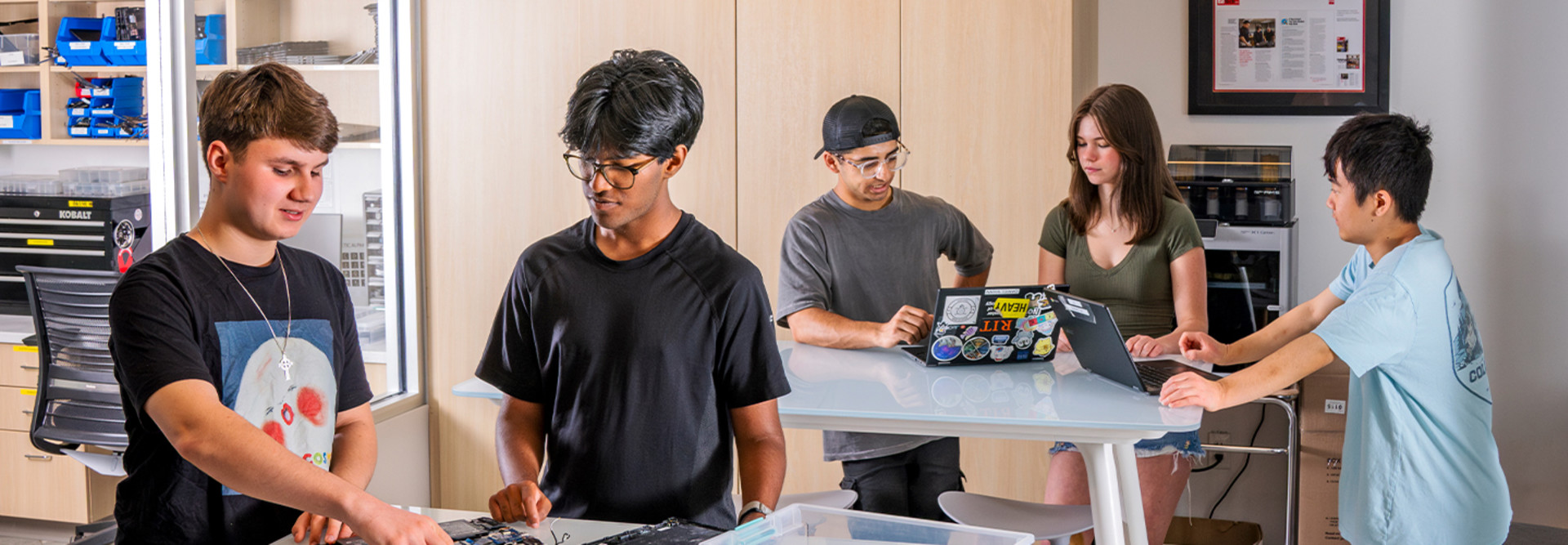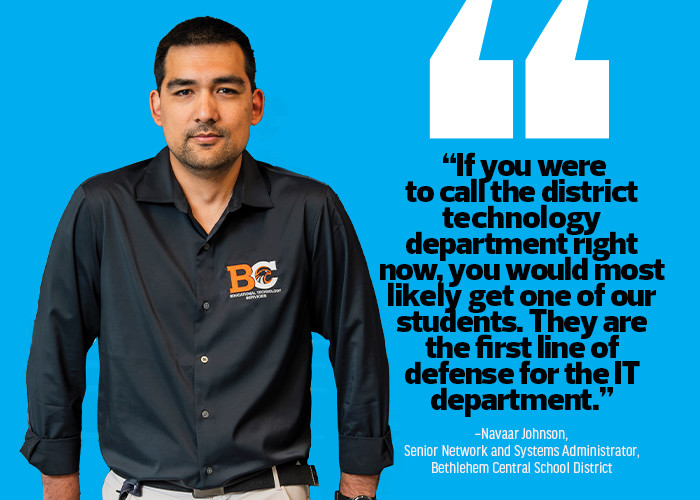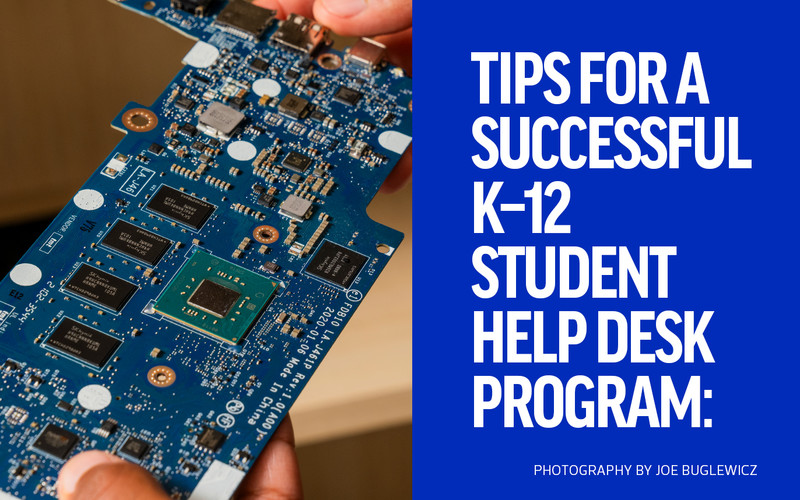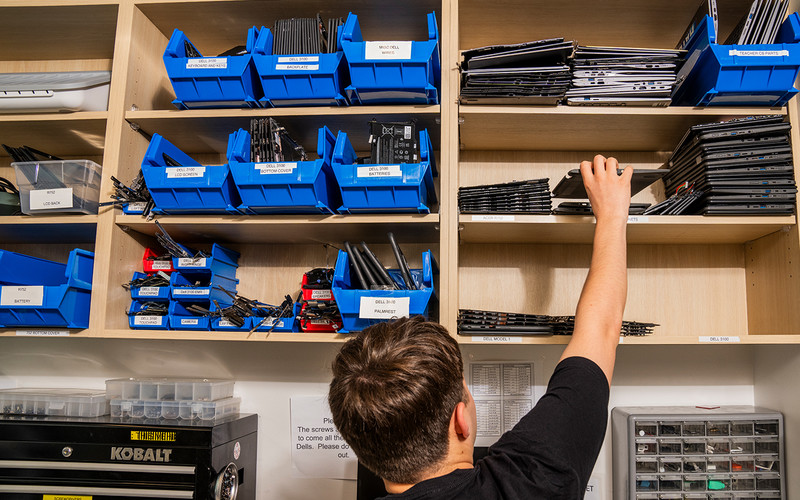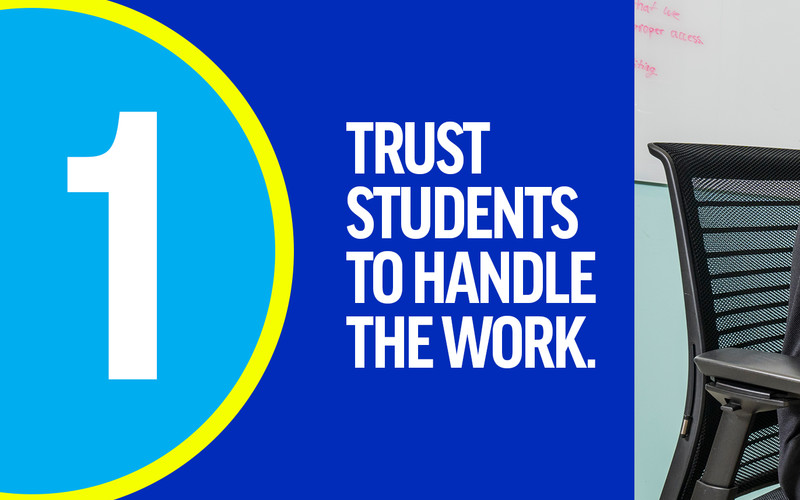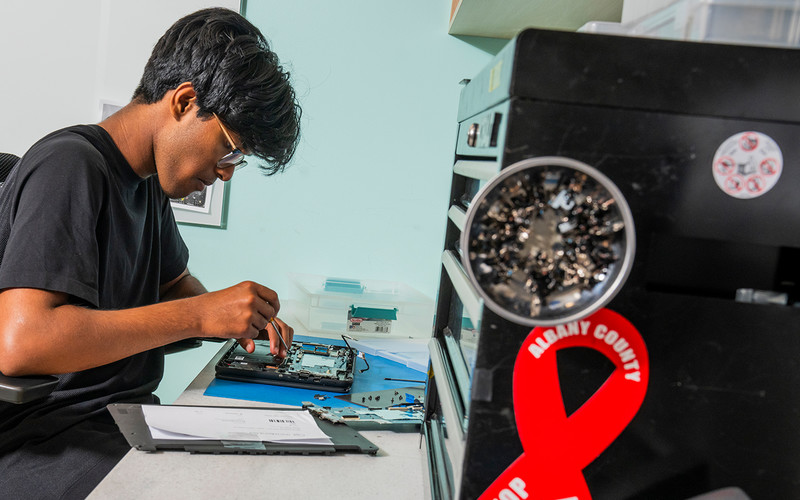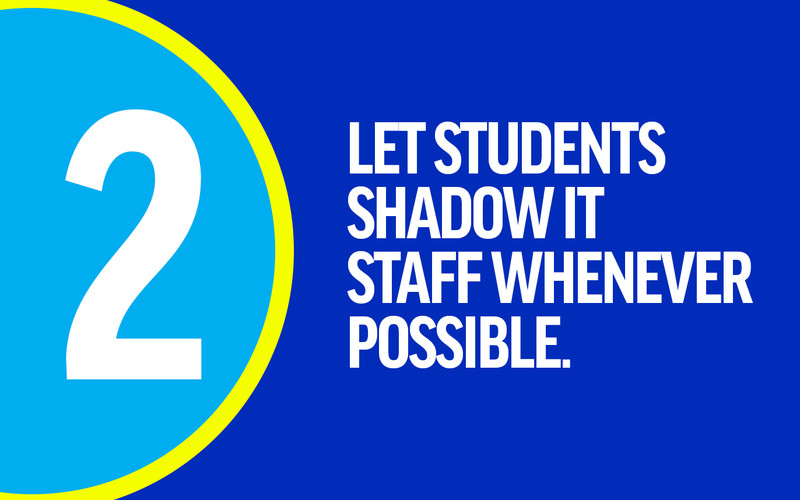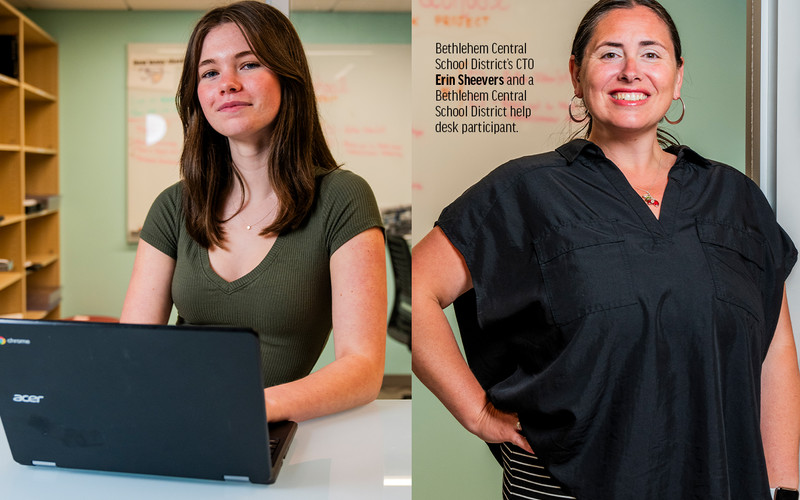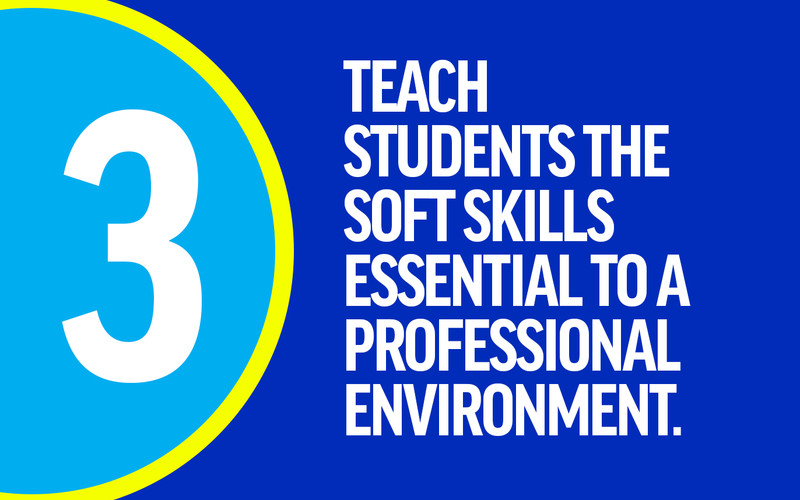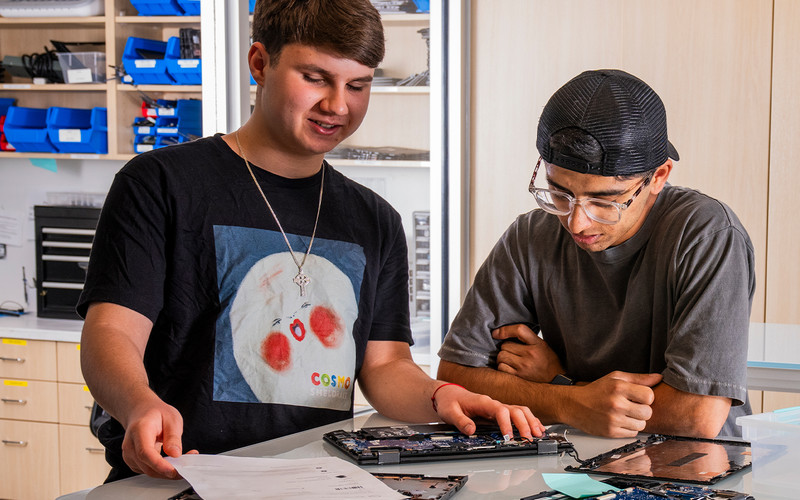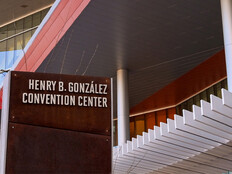“They do it all,” says Erin Sheevers, the district’s CTO. “We recently switched wireless providers, so they’ve been key in troubleshooting that and new service set identifiers. They’re able to answer all of the questions teachers have, and it’s because they’re trusted and valued.”
Not far away, in New Paltz, N.Y., the Ulster Board of Cooperative Educational Services’ Young Professional Help Desk program, also known as Tech Connect, offers similar opportunities within an already tech-rich environment. The program is so popular that Kathy Landers, a Cisco-certified career and technical education teacher for the Ulster BOCES, has requested instructional support to add more seats in the 56-seat program. Students receive college credit for their work, which focuses on technology problem-solving as well as long-term projects.
Student Help Desks Save on Labor Costs and Impart Technical Skills
Bethlehem started its program in 2012 with 14 students. “At that time, there were a lot of budget cuts,” Johnson says. “But the budget for technology was growing, and we had more devices coming in. We had to find a way to support all of that while maintaining the IT department’s size, which wasn’t enough to cover everything.”
With more schools transitioning to one-to-one programs in recent years, K–12 technology leaders are concerned about the sustainability of those extra devices. Last fall, CoSN released a new report, ”Navigating Student Device 1:1 Sustainability,” which explores the value of student-led tech support.
“Engaging students in the technology repair process not only saves labor costs but also offers educational benefits, like college credits and certifications,” the report notes.
As examples, the report points to the New Mexico Public Education Department and New Mexico Regional Education Cooperatives Association, which launched a statewide student-run help desk. Students resolve support tickets within their districts and through the statewide call center while gaining skills and completing technical certifications.
LEARN MORE: Schools share strategies for addressing the coming federal funding cliff.
The Bethlehem and Ulster BOCES programs take a no-holds-barred approach to access and engagement for students, exposing them to virtually every support call or troubleshooting request that comes in. That includes everything from renaming tablets and building monitor stands to repairing Chromebooks and solving connectivity challenges, and much more.
Bethlehem Central School District has invested heavily in its program, building out a “genius bar” help desk station in the central lobby of Bethlehem High School, where students create support tickets. An adjoining glass-enclosed clean room provides space for the students to disassemble and repair Chromebooks and other devices.



